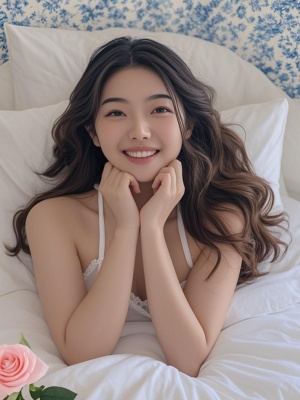Exploring the Diverse World of Portrait Photography Types
Portrait photography is one of the most popular and versatile genres in photography, capturing the essence, personality, and emotions of individuals or groups. Whether you're a professional photographer or an enthusiast, understanding the different types of portrait photography can help you choose the right style for your subject and purpose. In this article, we'll explore the various types of portrait photography, their unique characteristics, and how to master each style.
1. Traditional Portraits
Traditional portraits are the most classic form of portrait photography, often characterized by posed subjects and a formal composition. These portraits are typically shot in a studio with controlled lighting and a neutral background.
Key Features:
- Posed and structured composition
- Studio lighting for controlled effects
- Neutral or simple backgrounds
- Focus on facial expressions and details
Traditional portraits are commonly used for professional headshots, family portraits, and formal occasions. For more creative variations, check out our Portrait to Art Detail guide.
2. Environmental Portraits
Environmental portraits place the subject in a meaningful setting that tells a story about who they are or what they do. Unlike traditional portraits, these images incorporate the surroundings as an essential element of the composition.
Problem-Solution Matrix:
- Problem: Flat, uninteresting portraits
- Solution: Use environmental elements to add context and depth
- Problem: Distracting backgrounds
- Solution: Choose locations that complement but don't overpower the subject

Environmental portraits are perfect for professionals like artists, chefs, or musicians, as they showcase both the person and their craft. For location inspiration, browse our Travel Scenes collection.
3. Candid Portraits
Candid portraits capture people in unposed, natural moments, often resulting in more authentic and emotional images. This style is popular in wedding photography, street photography, and documentary work.
Tips for Great Candid Portraits:
- Use a longer lens to maintain distance
- Shoot in continuous mode to capture fleeting expressions
- Look for genuine interactions and emotions
- Be patient and ready for the perfect moment
For capturing special moments like birthdays, our Birthday Special guide offers great candid photography tips.
4. Creative Portraits
Creative portrait photography pushes boundaries with unconventional techniques, unique perspectives, and artistic manipulation. This can include experimental lighting, unusual angles, or digital enhancements.
Modern creative portraits often incorporate AI technology for stunning effects. According to Digital Photo Pro, AI-powered tools are revolutionizing portrait photography with features like:
- Automatic background replacement
- Advanced skin retouching
- Style transfer effects
5. Group Portraits
Group portraits present unique challenges in arranging multiple people while maintaining visual harmony. These can range from family portraits to corporate team photos.
Composition Techniques:
- Create depth with staggered positioning
- Use natural framing elements
- Ensure all faces are clearly visible
- Coordinate outfits for visual cohesion
For family portrait ideas, explore our Family Scenes section with beautiful examples.
Conclusion
Portrait photography offers endless possibilities for creative expression. Whether you prefer the controlled perfection of traditional portraits, the authenticity of candid shots, or the artistic freedom of creative portraits, each style serves different purposes and audiences. As noted by Popular Photography, mastering multiple portrait styles makes you a more versatile photographer capable of meeting any client's needs.
Remember, the best portrait photography captures not just how someone looks, but who they are. Experiment with different styles, techniques, and technologies to find your unique photographic voice.